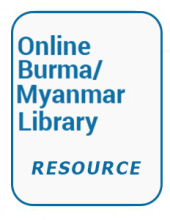Land Library
Welcome to the Land Portal Library. Explore our vast collection of open-access resources (over 74,000) including reports, journal articles, research papers, peer-reviewed publications, legal documents, videos and much more.
/ library resources
Showing items 1 through 9 of 1986.This guide for legal advisors, community leaders and members builds on Guide 1 in this series. If a community decides to negotiate with a potential investor, this guide describes issues that can be included in a community–investor contract.
This guide for legal advisors, community leaders and members explains how communities can prepare for interactions with potential investors, including making decisions about whether or not to negotiate.
This paper examines such interactions between industrial plantations and hydropower projects, demonstrating that it is the diverse livelihoods of local people – based on everyday use of multiple resources – that crucially connects aquatic and terrestrial environments.
This paper explores the divergent processes of agrarian transition in Cambodia and Vietnam and the ways in which they intersect through flows across the border, arguing that it is not possible to understand current processes of agrarian change in Cambodia without being attentive to agrarian histo
Reports on the meeting on 12-13 December, plus text of "Third Asia-Pacific Water Summit:
Water Security for Sustainable Development
Yangon Declaration:
The Pathway Forward
A community paralegal, also known as a grassroots legal advocate or a barefoot lawyer, is a community resource person and mobiliser, trained in basic law and legal procedures and in skills like mediation, negotiation, education, and advocacy.
While Burma’s ethnic states are blessed with a wealth of natural resources and biodiversity, they
have been cursed by the unsustainable extraction and sale of those resources, which has fuelled
Early in the morning of 25 August 2017, members of a Rohingya armed group, the Arakan Rohingya
Salvation Army (ARSA), attacked approximately 30 security force outposts in northern Rakhine State.1 In its
...Credible information indicates that the Myanmar security forces purposely destroyed the
property of the Rohingyas, scorched their dwellings and entire villages in northern Rakhine
State, not only to drive the population out in droves but also to prevent the fleeing Rohingya





